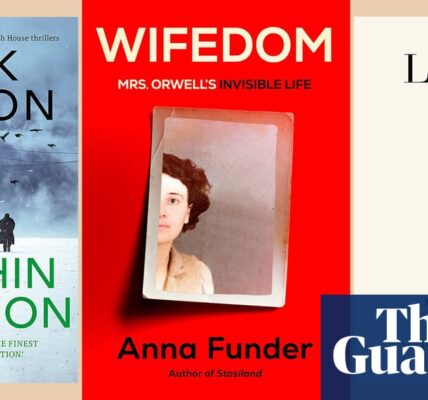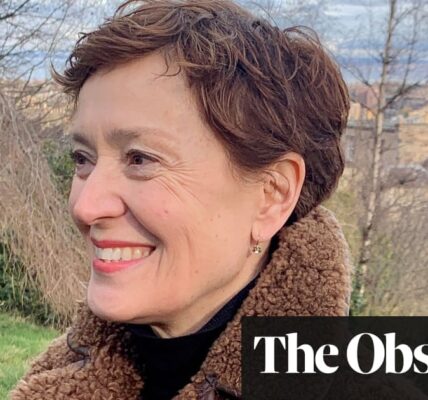When Pippa Haywood was asked to reprise the role of Joanna in a revival of cult hospital comedy Green Wing, it was a no-brainer: “None of us quite knew what we were making during the original, but it was a special atmosphere, it was unique.” The twist that the series would return as a podcast, instead of on TV, sealed the deal: “You don’t have that awful thing of, ‘Who’s aged best?’ I could be butt-naked in a scene, and I wouldn’t even need to shave my legs – you don’t want to see 60-year-old Pippa stripping off.”
Green Wing: Resuscitated was made by the show’s creator, Victoria Pile, along with the original writers and cast (including Olivia Colman, Stephen Mangan and Tamsin Greig). Its release marks 20 years since the offbeat sitcom first aired, and picks up 16 years after the final episode in 2007. Guy (Mangan) is now a TV doctor, Harriet (Colman) is, somehow, head of HR, and Joanna (Haywood) is in prison after her killing spree.
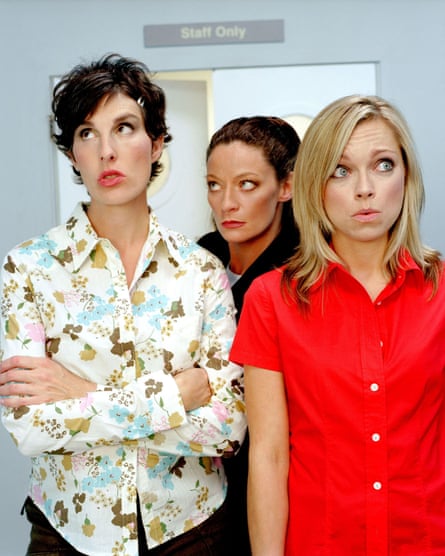
Reboots rarely get glowing reviews, but the response has been positive – a worthy addition to the Green Wing legacy. Does this mean that more of our favourite old TV shows are set to come back in podcast form?
“This wasn’t my idea at all,” says Pile, who had been repeatedly asked to do it since lockdown. “I was very resistant to be honest.” She only said yes when, to her surprise, it slowly became clear that everyone from the original was keen. They agreed that, at a time when “TV wasn’t really happening”, a podcast was more feasible. “But we agreed that it would very much be along the lines of doing it as if it were a TV show.”
That said, production isn’t the same. There are inevitably pros and cons that come with switching from TV to podcast, with less recording time and lower expenses being whopping pros that trump all other factors. Haywood says filming took months for each TV series, but the podcast was recorded in just a few days – it would have been impossible to get this sprawling, successful cast together, including an Oscar-winning actor, for much longer. “There were massive catching up sessions, but that chemistry was still there. It really was a bit of a nuisance when we had to go and record scenes.”
Does this compromise the quality of a series known for its wacky physical comedy? “I wish they’d had a camera in the studio,” says Haywood. “You’re almost doing the physical side of it more because you’re imagining it all in your head – but you’re in front of a microphone.”
“Green Wing was a very visual show,” adds Pile. “Not everyone’s cup of tea but that was my pleasure – it was almost choreographed, with beautiful music. This was a very different beast. But it a gave us a freedom to make jokes that we couldn’t have done visually: the camel scene, for instance – if you wanted to have a camel walking down a corridor in the TV series, you’d have to go get a camel and have it walk down a corridor on camera.”
Reuniting a TV show’s stars for a podcast is something that is increasingly proving wildly popular. Stars of The Office, Scrubs and The OC have all had hit TV rewatch podcasts where they look back at their series’ legacy. And last year, original cast members of Buffy the Vampire Slayer – James Marsters, Anthony Head and Charisma Carpenter continued the drama in Slayers: A Buffyverse Story. Before that, spin-off podcast Doctor Who: Redacted gave Jodie Whittaker’s Time Lord an audio outing, alongside three new characters: paranormal conspiracy podcasters.
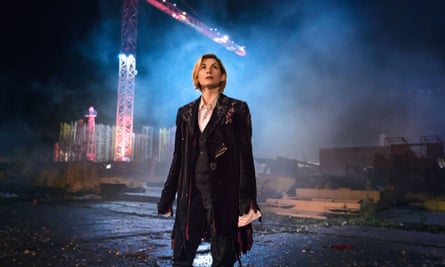
The key to this new type of podcast’s success, perhaps, is ensuring that as much of the original team is involved as possible, so that the beating heart helps make the transfer. Just look at the triumph that is Alan Partridge’s somewhat inevitable pivot to the world of podcasting. From the Oasthouse: The Alan Partridge Podcast has had three well-received seasons since 2020, with producer Joe Fraser, writers Neil and Rob Gibbons (who all worked on This Time With Alan Partridge and Alan Partridge: Alpha Papa) and, of course, Steve Coogan at the helm.
In the show, Alan does straight on-mic monologues, then takes listeners along with him potholing, say, or wild swimming, showing his “domestic” side. “It felt like such a natural fit for Partridge,” says Fraser. “His desperation to keep his media profile up and keep up with the times, along with the opportunity to speak at length without interruption, made it an obvious next step for the character. From a writing and production perspective, it’s such a great medium to do Alan world-building.”
after newsletter promotion
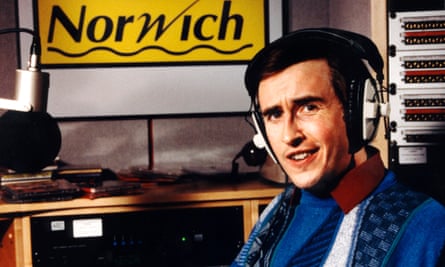
Recording days simply involve just the Gibbons and Coogan, says Fraser. “The whole world around Alan, including any other characters, is almost entirely crafted in post-production, so it is creatively liberating to know we can achieve more or less anything they come up with.”
“There’s space to be meandering and reflective and there’s so much detail to enjoy in the small world of his personal life. The Gibbonses write that pure character stuff brilliantly and Steve tunes into those rhythms effortlessly.”
While a fourth series hasn’t been confirmed, it’s had a good run thanks to fan support: “It makes him feel ‘real’ maybe more than in any other medium,” says Fraser.
Take it all as a sure sign that this might be the way forward for some old TV classics. It’s fun to experiment with, says Fraser, but only if you’ve got “a character or world that’s rich enough”. Haywood goes as far to say that podcast reboots are better than TV: “So few of them actually work [on TV] because the cast is ageing, sometimes it’s missing members – they might even be dead!” With podcasts, though, “you have the visual memory of the original series in your head. And you just carry that forward.”
Source: theguardian.com
